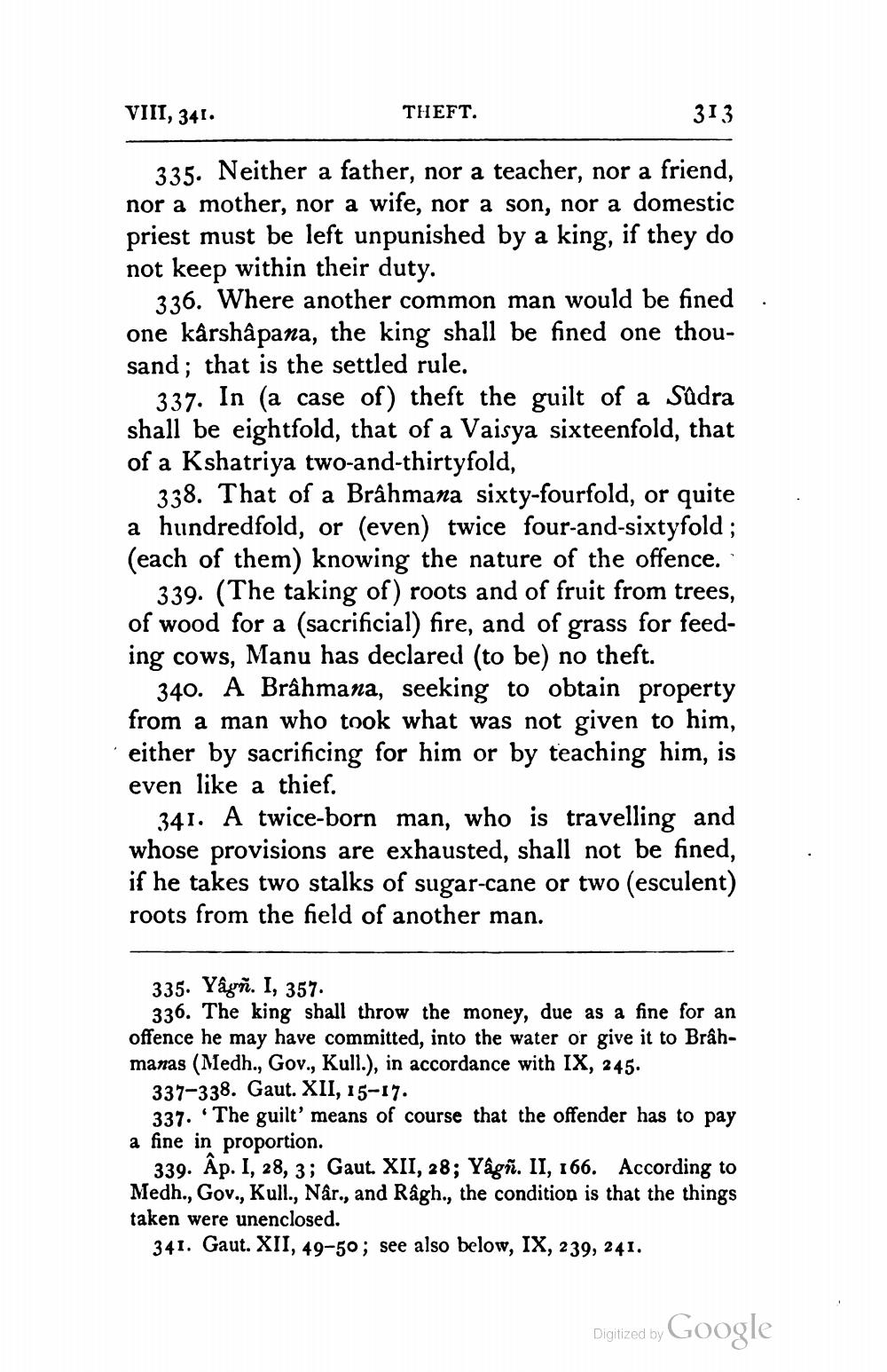________________
VIII, 341.
THEFT.
313
335. Neither a father, nor a teacher, nor a friend, nor a mother, nor a wife, nor a son, nor a domestic priest must be left unpunished by a king, if they do not keep within their duty.
336. Where another common man would be fined one kårshậpana, the king shall be fined one thousand; that is the settled rule.
337. In (a case of) theft the guilt of a Sudra shall be eightfold, that of a Vaisya sixteenfold, that of a Kshatriya two-and-thirtyfold,
338. That of a Brâhmana sixty-fourfold, or quite a hundredfold, or (even) twice four-and-sixtyfold; (each of them) knowing the nature of the offence.
339. (The taking of) roots and of fruit from trees, of wood for a (sacrificial) fire, and of grass for feeding cows, Manu has declared (to be) no theft.
340. A Brâhmana, seeking to obtain property from a man who took what was not given to him, · either by sacrificing for him or by teaching him, is even like a thief.
341. A twice-born man, who is travelling and whose provisions are exhausted, shall not be fined, if he takes two stalks of sugar-cane or two (esculent) roots from the field of another man.
335. Yâgñ. I, 357.
336. The king shall throw the money, due as a fine for an offence he may have committed, into the water or give it to Brâhmanas (Medh., Gov., Kull.), in accordance with IX, 245.
337-338. Gaut. XII, 15-17.
337. The guilt' means of course that the offender has to pay a fine in proportion.
339. Âp. I, 28, 3; Gaut. XII, 28; Yagñ. II, 166. According to Medh., Gov., Kull., Nár., and Ragh., the condition is that the things taken were unenclosed.
341. Gaut. XII, 49-50; see also below, IX, 239, 241.
Digitized by Google




